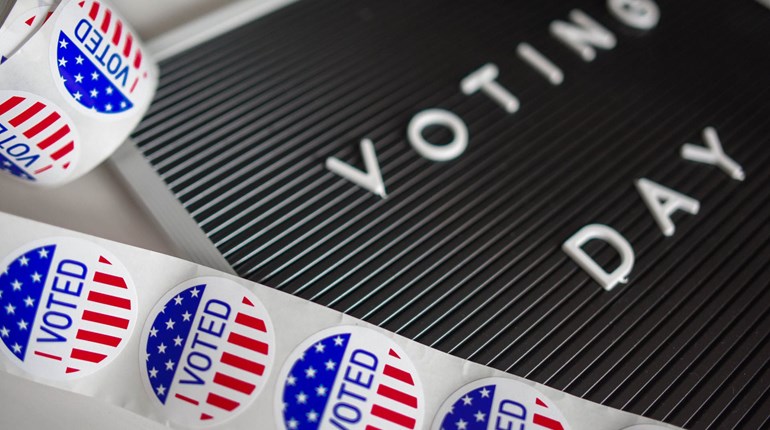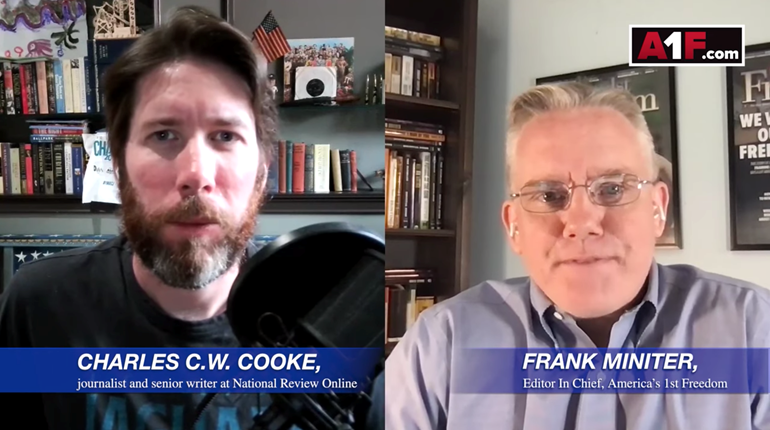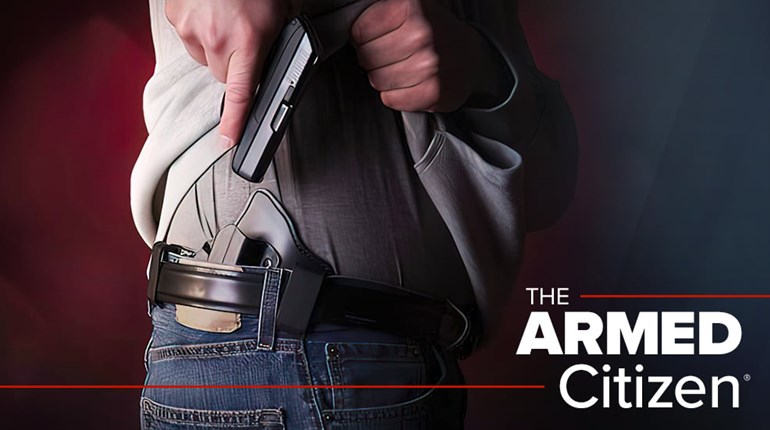
We talk too much about mass shooters. There, I said it.
To render such a judgment in today’s media environment is to inevitably invite an almost endless supply of underhanded “so you’re saying …?” insinuations. “So you’re saying that mass shootings should be covered up?” Nope. “So you’re saying that mass shootings don’t matter?” No, I’m not. “So you’re saying that we should undermine the First Amendment in order to cover for the Second?” Under no circumstance.
I’m saying what I said: We talk too much about mass shooters.
I am about as close to being a First Amendment absolutist as it is possible to be. There are almost no circumstances in which I can conceive of the state playing a meaningful role in policing the speech of free people. However rhetorically ugly things might get at the margins, I do not want to live in a culture in which the cultural ascendant dispatch armed agents to bully the dissenters into line. This view applies to the press as much as it does to individuals—although it applies no more so. If the people are to remain at liberty, they must resist the allure of the professional arbiters of taste. I do not want to regulate the media.
But to be a First Amendment absolutist is in no way to suggest that one cannot—and should not—exercise one’s own good judgment. Indeed, in a culture that is supposed to self-regulate, good judgment is imperative. And neither our culture, nor the press that helps inform it, are exercising anything in the vicinity. On the contrary: At best, they are fostering moral panic, and at worst they are getting people killed.
“You will all know my name,” a recent shooter promised, mere hours before he murdered a bunch of his classmates.
To carry out a mass shooting in America these days is to become instantly notorious. Worse still, it is to determine the topic of conversation in almost every national institution for weeks—maybe months—on end. As is their aim, shooters who act on their threats see their names, their words, their ideas and their photographs spread instantly around the world, as an insubordinate rock star might have in the 1970s. In addition, they get to watch as almost the entirety of popular culture is subjugated to their decisions. When news of a shooting breaks, everything else disappears—even plane crashes. Before long, the coverage is wall to wall. Within a day, all news stories begin “In the aftermath of …,” as if the event had warranted an ersatz B.C./A.D. annotation. Under media pressure, Congress, the White House and state legislatures talk of little else. Made giddy by the horror, newspapers and talk shows become monomaniacal. Seeking renewed relevance, celebrities help to make the perpetrators trend worldwide.
That this creates some extremely perverse incentives for the unhinged among us is self-evident. Look at any killer’s manifesto, diary or final video, and you will see that he knows full well that his actions represent a ghastly shortcut to fame. “You will all know my name,” a recent shooter promised, mere hours before he murdered a bunch of his classmates. And sure enough, we did.
A growing pile of academic literature supports the idea that the publicity that follows a shooting all but guarantees the next one. In a paper presented to the American Psychological Association’s 2016 annual conference, Jennifer B. Johnston and Andrew Joy proposed that “media contagion” was the largest factor behind the phenomenon of mass casualty attacks. “A cross-cutting trait among many profiles of mass shooters is a desire for fame,” Johnston explained. And with the “emergence of widespread 24-hour news coverage on cable news programs and the rise of the internet,” those shooters have found a way to translate that desire into reality.
Researchers such as Madelyn Gould and Adam Lankford have found similar results. Gould, in particular, concluded that, in addition to providing the perpetrators with their coveted infamy, breathless media reports often help give maladjusted individuals the idea to attack in the first place. Gould’s 1999 paper on the subject determined that the copycat effect was not only real, but that it existed internationally, and over long periods of time. This, in turn, echoed the findings of Paul Mullen, a forensic psychologist who investigated the massacre at Port Arthur in Australia, and adjudged that the shooter had been inspired to act after he saw how much attention had been lavished on the perpetrator of the Dunblane Massacre in Scotland one month earlier.
This should come as no great surprise to anyone who has read the testimony of shooters and would-be shooters in the United States. “The role of the media in turning school gunmen into household names,” The New York Times noted in a recent feature, “can be shown to have inspired additional attacks.” In no instance was this more obviously the case than with Columbine. Time and time again, shooters cite Columbine as an influence and a model, with some going so far as to admit that their aim was to “beat the scores” that recent perpetrators had racked up, and thereby become the “greatest school shooter of all time.” Were such aspirations the product of an isolated subculture, they would be alarming enough. That they feed off the choices made by mass media makes the trend considerably worse.
Which is to say that publicizing these people is a choice we make, and a choice that we can stop making if we wish to. America has always had a high gun-ownership rate and a healthy respect for the right to keep and bear arms. It has not, however, always hosted these sorts of mass shootings. What has changed is not the guns, but the assurance that to commit a heinous act will be to halt American life for a while, and to go down in history as a villain whom other villains would mimic. If we wish to nip the trend in the bud, we might consider removing that assurance.
That the media’s role in creating shooters is inadvertent—or, at least, incidental—is so obvious that it should not need to be confirmed. Indeed, I suspect that the vast majority of news anchors and opinion columnists would be horrified if they were to learn that their behavior was making things demonstrably worse. Nevertheless, despite the growing evidence that some of the culpability lies with the choices that the press routinely makes, it seems not to have even crossed many journalists’ minds that their monomania in the aftermath of evil might be having the opposite effect of the one intended—that is, that rather than spurring interest in gun control, the frenzy is getting more people killed.
Likewise, it seems not to have occurred to them that they might be stressing their audiences out beyond all reasonable need. One mass shooting is too many; on that much we can hopefully all agree, even if we clash as to how we might prevent the next one. But it is not the case, as one writer at cnn.com recently claimed, that we are approaching the point at which everyone in America will know somebody who has been the victim of a mass shooting. It is not the case, as a student from Santa Fe, Texas, claimed in a video that the major networks ran for days, that it was “inevitable” that her school would be targeted. And it is not the case—as Pew reports 88 percent of Americans believe—that gun violence is increasing in the United States. (For that matter, it’s not even clear that school shootings are increasing; at the very least, we know that schools are much safer than they were 10, 20 and 30 years ago.)
It is not the case—as Pew reports 88 percent of Americans believe—that gun violence is increasing in the United States.
Once again: None of this is to suggest that we do not have a problem with which to contend, nor that we should “ignore” terrible massacres, nor that the press should be regulated in any way by Congress. Rather, it is to suggest that this topic be covered in the correct context, and that those charged with covering it exhibit some understanding of just how much damage their unyielding hyperbole is causing. It should be distressingly clear by now that the result of the networks’ mawkish obsession with firearms has not been the eradication of mass shootings, but the development of widespread fear—fear that has risen well beyond the accompanying threat—and the establishment of a potent recruiting tool for the next killer and his acolytes. That can change, if we want it to.
Those in the press who wonder how they ought to treat these incidents might use as their guide the manner in which they behave in … well, in almost every other circumstance. When it is covering a problem such as MS-13, the media seems instinctively to understand that, abhorrent as that gang is, and as urgently as it needs to be destroyed, it would be preposterous to imply that there’s a significant chance that any given child will become a victim—even though more people are killed by MS-13 each year than are killed by firearms in schools. (One reason the press adopts such a calm tone when discussing MS-13 is its desire to avoid tarnishing all immigrants with the bad actions of a minority. Why the same courtesy isn’t extended to gun owners is never explained.) Likewise, about 11 people die every day as a result of teenagers texting while driving. This is a big problem, and it should be covered. And yet, somehow, we manage to discuss it without allowing the conversation to replace all others, or hanging a large “It could be you!” sign over the debate table. Were we to take the same approach toward the criminal abuse of firearms, the landscape might look different indeed.
And that, ultimately, is what we’re all supposed to be aiming toward, is it not? A staple of our debate over firearms is the notion that “something must be done,” even if it saves “just one life.” Usually, this line is meaningless, for so long as we disagree over what that “something” should be, we will disagree as to how urgently we should bring that “something” to fruition. In this case, however, there is widespread agreement that the press is contributing to the problem.
And besides, the remedies are low in cost, and easily reversible should they fail to help. As of today, the press could decline to name names, to show photos and to share manifestos. As of today, news outlets could resolve to publish and to celebrate the names of the people who stop shootings, not those who begin them, and thereby relegate those who would harm others to a footnote in someone else’s story. As of today, news outlets could decide that context matters, and that it has the same responsibility to set MS-13 in the appropriate context as it does to set the abominations we have seen in Florida, and Texas, and Las Vegas. And if these changes make no difference, the press can revert to its previous behavior without having to ask permission from anybody.
We hear a great deal about how journalists hope to change the world, but less about how they are planning to do so in any concrete manner. We talk too much about mass shooters. There’s a straightforward way to fix that.
Charles c.w. Cooke is the editor of National Review Online.

































